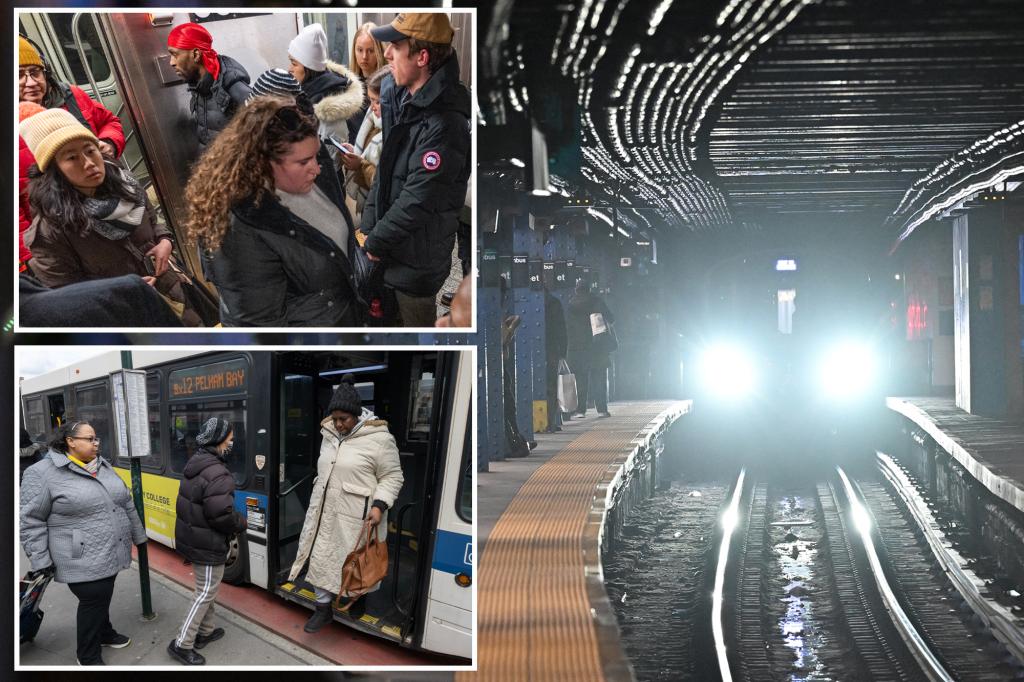The seemingly innocuous act of playing loud music or videos on public transportation without headphones is not merely a nuisance; it represents a subtle form of aggression, a calculated display of dominance underscored by an implicit threat of violence. This is the assessment of crime expert Rafael A. Mangual, a fellow at the Manhattan Institute, who argues that such behavior is a deliberate attempt to assert power and instill fear in fellow passengers. The recent stabbing of a commuter on the Metro-North train after he requested another passenger to lower the volume of his music tragically underscores this point. The incident epitomizes the underlying tension and potential for violence that simmer beneath the surface of these everyday disturbances.
Mangual’s analysis delves into the psychology behind this behavior, suggesting that these individuals derive a sense of power from the lack of challenge they receive. The silence of those around them serves as confirmation of their ability to intimidate and control the shared space. This, in turn, reinforces their self-perception as “tough guys,” further emboldening their disruptive actions. The unspoken threat of violence looms large, effectively silencing any potential dissent and creating an atmosphere of fear and apprehension for other passengers. The Metro-North attack serves as a stark reminder of the potentially dire consequences of challenging this implicit threat.
The fear of retaliation is palpable among commuters, many of whom admit to enduring the noise pollution rather than risking a confrontation. Anecdotes from straphangers paint a picture of an environment where loud music, often laced with offensive lyrics, is a common occurrence. They describe witnessing aggressive posturing and a palpable sense of anticipation for a confrontation. One commuter recounted a near-altercation sparked by a simple glance directed at someone playing loud music. The incident, though de-escalated by the presence of children, highlights the volatile nature of these situations and the pervasive fear of provoking a violent response.
The fear of becoming a victim of violence prevents many from speaking up. Commuters express a sense of resignation, prioritizing their safety over confronting the disruptive behavior. They acknowledge the prevalence of loud music and videos on public transport but choose to endure the annoyance rather than risk a potentially violent encounter. The prevailing sentiment is that the potential consequences – injury or even death – outweigh the inconvenience of the noise. This fear is further fueled by the perception that such behavior often goes unchallenged and unpunished.
Despite MTA regulations prohibiting loud music and videos on public transportation, with fines of up to $50, enforcement remains elusive. Commuters report rarely, if ever, witnessing any intervention by authorities. This lack of enforcement contributes to the normalization of disruptive behavior and reinforces the sense of impunity among those who engage in it. Mangual argues that this failure to address minor infractions creates a breeding ground for more serious crimes. The unchecked disorder signals a vulnerability, emboldening potential perpetrators and contributing to a decline in overall safety.
The recent spate of high-profile violent incidents on the subway system has further heightened anxieties. The burning death of a sleeping woman and the shoving of a man in front of an oncoming train, coupled with the protracted trial of Daniel Penny for the death of a homeless man, have created a climate of fear and uncertainty. These incidents weigh heavily on the minds of commuters, making them even more reluctant to confront disruptive behavior. The fear of escalating a situation and becoming another victim of violence has become a powerful deterrent. The collective apprehension underscores the urgent need for increased vigilance and enforcement to restore a sense of safety and order on public transportation.










